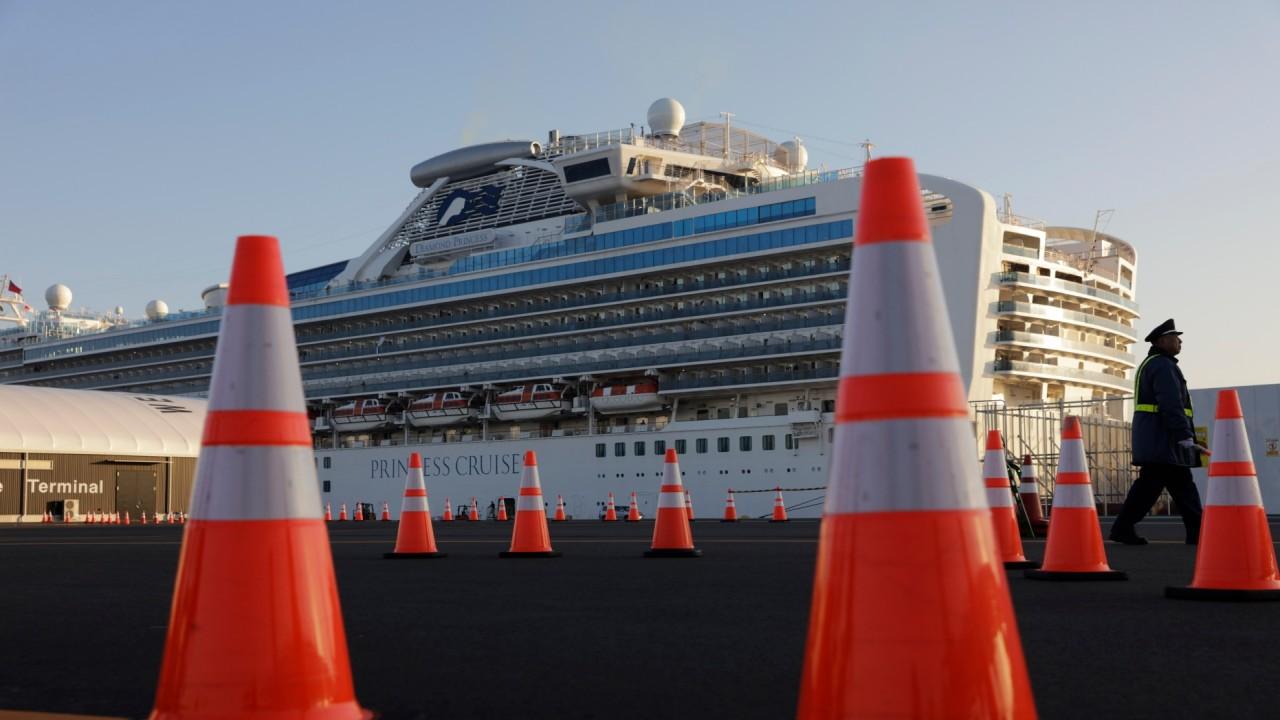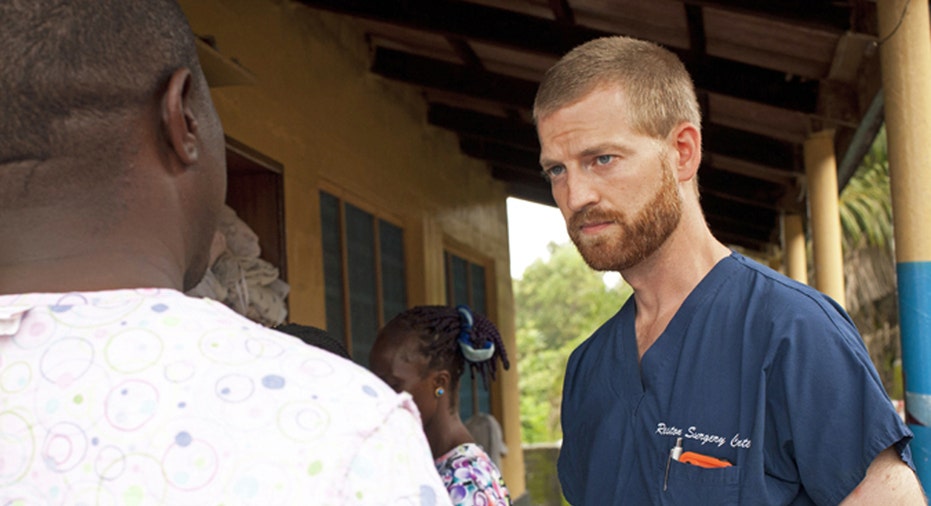Coronavirus quarantine: American doctor who survived Ebola shares experience
Brantly contracted Ebola while working with patients in Liberia in 2014
The coronavirus outbreak is an opportunity to "choose compassion over fear," Ebola survivor Dr. Kent Brantly told FOX Business in an exclusive interview.
Brantly contracted the virus while working with Ebola patients in Liberia in 2014. He recovered after being evacuated to Atlanta's Emory University Hospital and receiving the experimental drug ZMapp (its effect on his recovery is unknown).
CORONAVIRUS CASES IN THE US DOUBLE TO 29. HERE'S WHERE THEY ARE AND WHAT TO KNOW
Just a few months later, Brantly traveled to the University of Nebraska Medical Center in Omaha to donate blood to Dr. Rick Sacra, who also contracted Ebola in Liberia. Sacra recovered.
"The message I shared in 2014 is just as true and just as pertinent now as it was then: We must choose compassion over fear," Brantly told FOX Business. "We must choose to respond to people (even in deadly outbreaks of infectious diseases) with actions and words and attitudes that convey compassion and uphold the dignity of our fellow human beings."
Thirteen evacuees aboard the Diamond Princess cruise ship arrived at the National Quarantine Unit on the UNMC campus on Monday. The facility cared for three patients with Ebola in its extremely secure Nebraska Biocontainment Unit in late 2014.
Dr. Kent Brantly (Copyright: Samaritan's Purse)
WHAT TYPE OF ECONOMY DOES CHINA HAVE?
One evacuee has been moved to the biocontainment unit, the Lincoln Journal Star reported.
The facility is one of the most secure places in the world for patients with infectious diseases. So far, nearly all coronavirus cases in the U.S. (excluding the Diamond Princess evacuees) have been linked to individuals who recently returned from infected areas in China. Travel has been all but cut off between the U.S. and mainland China and Hong Kong, and speculation abounds about how the recent outbreak will impact the world economy.
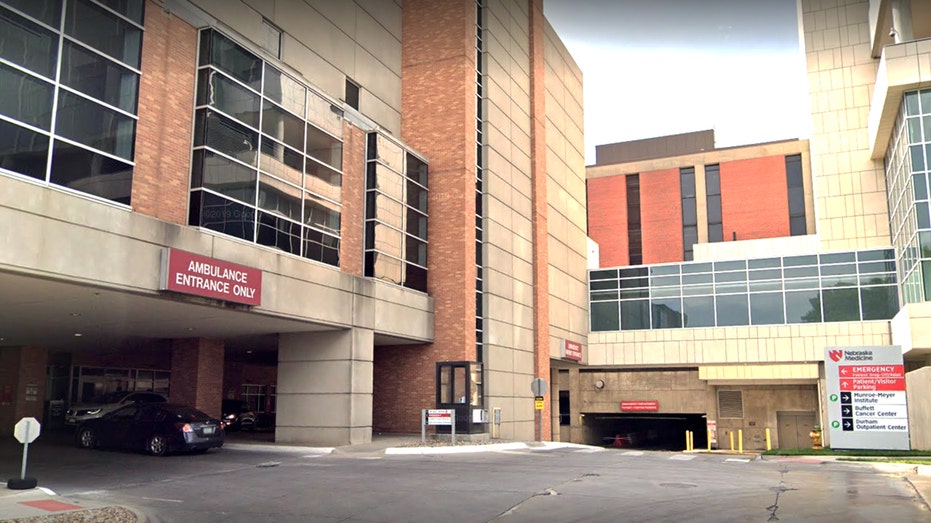
After his widely publicized recovery, Brantly used his platform to raise awareness of the deadly disease, meeting with former President Barack Obama at the White House in 2014. He also graced the cover of Time magazine's 2014 "Person of the Year" issue, representing the Ebola fighters.
While there are many differences between the coronavirus and Ebola outbreaks, but some things remain the same: People are afraid to travel and health care workers are putting themselves in harm's way. This week, Liu Zhiming, the director of the Wuhan Wuchang Hospital, became at least the seventh health worker to die of the COVID-19 disease.
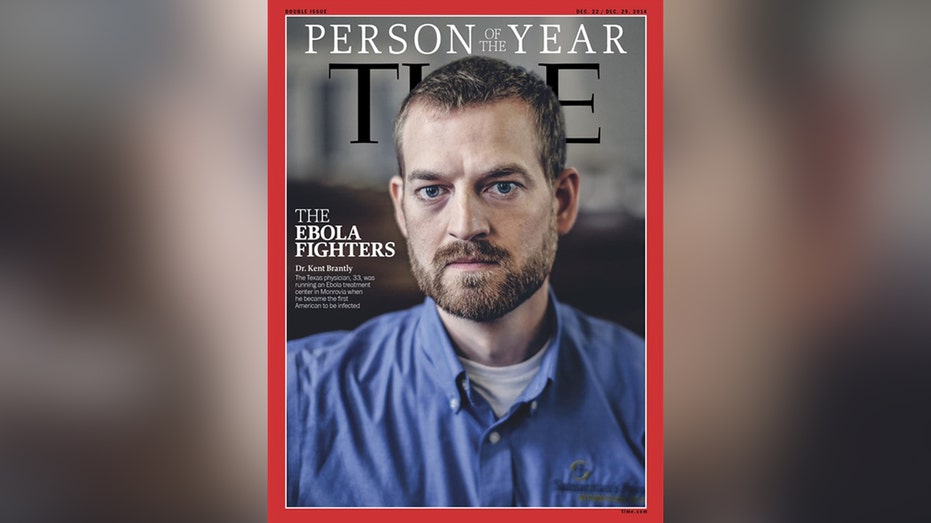
Dr. Kent Brantly appears on the cover of Time.
VIRUS CLAIMS LIFE OF HOSPITAL DIRECTOR IN HARD-HIT WUHAN
"I am thankful to the many, many people who said 'yes' to me in the midst of my most desperate need, allowing me to be flown to Atlanta and treated at Emory," Brantly said. "I'm thankful for the compassion that was shown to me, and I will advocate for that same type of compassion to be shown to others, including other health care workers who put themselves in harm's way in order to protect the rest of us from a global epidemic."
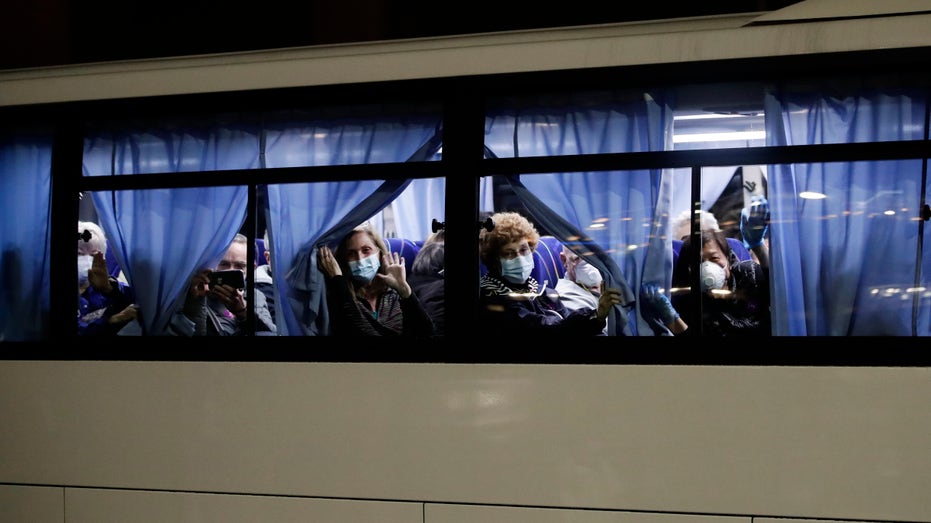
Buses carrying passengers from the quarantined Diamond Princess cruise ship leave a port in Yokohama, near Tokyo, Monday. (AP Photo/Jae C. Hong)
Brantly and his family moved to Zambia, in southern Africa, to serve at a Christian mission hospital in 2019.
GET FOX BUSINESS ON THE GO BY CLICKING HERE
"Fear has a dehumanizing effect, both on those toward whom we project our fear as well as on ourselves," Brantly said. "We cannot allow fear, however reasonable it might seem, to dominate us and drive our decisions. We live in an interconnected world; the well-being of all of us is directly connected to the well-being of each of us. The best way to ensure self-preservation is through joining in the suffering of others and together finding the way forward."
The Associated Press contributed to this report.




















